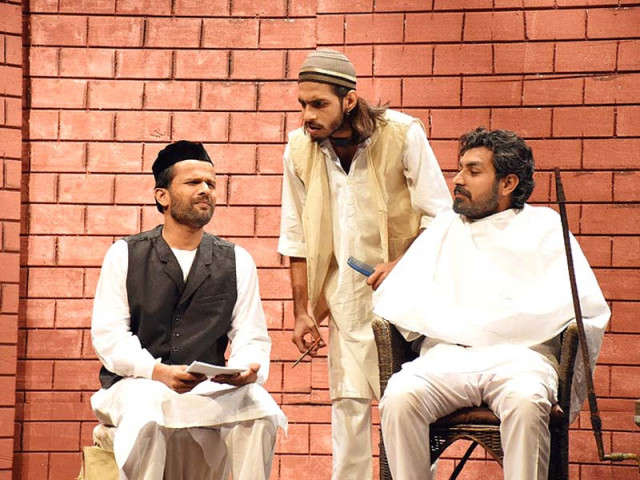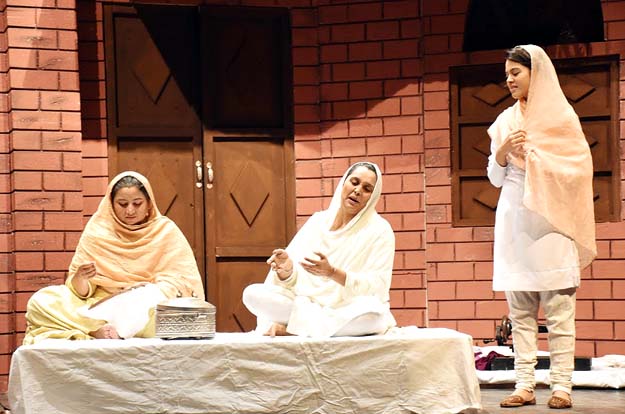Reflections: What dreams may come
‘Khwabon Kay Musafir’ is Pakistani theatre at its best, pointing out our incompetence and stagnancy as a society

Saad Zameer Faridi, Akber Ladhani and Zakiullah Khan in a scene from the play Khwabon Kay Musafir. PHOTOS: FILE
Upon my return to Pakistan, it was clear that I was an alien here as well. Never a frequent visitor to local theatre, I had only watched a few stage dramas. Except their names, I was unaware of Pakistani theatre veterans such as Zia Mohyeddin. Thus, when I went to watch Khwabon Kay Musafir, I did not know what to expect.
Written by Intizar Hussain and directed by Mohyeddin, the play was the opening show of the ongoing Karachi Theater Festival at Karachi Arts Council. For me, it served as an insight into the better days of theatre in Pakistan. The play, set in the 1950s Lahore, revolves around a migrant family’s life and the mother’s concern for the marriage of her only daughter. Interestingly, the post-partition background of the story served to freely shed light upon many social themes that are even prevalent today.
The old couple Mia Jaan (Saad Zameer Faridi) and Buji (Shumaila Taj) are the heart of the story, serving as the expositors and carrying the narrative forward as well. Their daughter Kishwar (Maria Saad) wants to marry Iffo (Adnan Anis), her father’s nephew, while her aunt Bari Bua (Zarqa Naz) wants her to marry her son, Shahid (Taha Khan).

Iffo’s unemployment, combined with his laid back attitude and conceiving big business plans that never work out, has led to worry about his future with Kishwar. The situation may not seem out of the ordinary, but the play was written in the 1960s. No matter how clichéd the premise may sound to a contemporary audience, its old school setting and the witty dialogue gelled really well. For a not-so-great Urdu speaker who can still appreciate the euphony of the language, the brilliant performances and the dialog delivery transport you to the yesteryears.
The most entertaining scenes were between Mia Jaan and his barber Bundoo (Akber Ladhani), who adds great energy with over-the-top body language. The reiteration of key phrases such as “pilaan fail hogaya (Plan was a fail),” sputnik references and the idea of Karachi as the go-to city for a better life, made for an entertaining watch.
One line that stood out among all others was “Unn Ka Shijra Hijrat Mein Gumm Ho Gaya Tha (His family tree was lost in migration)” when Mia Jaan refers to someone. If there is one line that could sum up the soul of the play, this would be it. It exposes the fact that while we pretend to hold on to our roots, they conflict with our desires, leaving us in a limbo, caught in between.
Khwabon Kay Musafir is Pakistani theatre at its best, as it discreetly points out our incompetence and stagnancy as a society and our will to move forward, buried by our lack of effort to do so.
Published in The Express Tribune, November 6th, 2016.
Like Life & Style on Facebook, follow @ETLifeandStyle on Twitter for the latest in fashion, gossip and entertainment.



















COMMENTS
Comments are moderated and generally will be posted if they are on-topic and not abusive.
For more information, please see our Comments FAQ